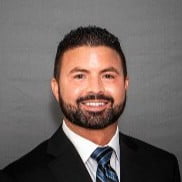

Zoloft addiction is not the same as opioid or benzodiazepine addiction, but it is still dangerous when misuse and compulsive patterns take hold. Zoloft (sertraline) is one of the most prescribed antidepressants in the U.S.—roughly 1 in 8 adults use an antidepressant each year—so access is easy and misuse happens. People who take more than prescribed, mix it with alcohol or other drugs, or stop suddenly can face serious medical events, from panic and relapse to ER visits. Sudden stoppage can trigger withdrawals for about 1 in 5 people, and combining antidepressants with alcohol, stimulants, opioids, or MDMA raises the chance of overdose, accidents, and medical crises. If this sounds familiar, you’re not alone—and help is available today for both Zoloft addiction and sertraline dependence.
Zoloft Addiction at a Glance: Signs & Symptoms, Risks, Overdose
What it is. Zoloft (generic: sertraline) is an SSRI used for depression, anxiety, OCD, PTSD, and panic disorder. It changes serotonin signaling in the brain. While SSRIs don’t produce a classic “high,” people can still slip into compulsive use—taking extra doses to “take the edge off,” self-medicating stress or insomnia, or using without a prescription. That pattern can evolve into sertraline dependence and unsafe decision-making.
Street names. Antidepressants don’t have widely used street names. Most people say “Zoloft” or “sertraline.” In casual talk, they may be lumped in with vague slang like “happy pills,” which can make risks seem smaller than they are.
Common signs & symptoms of problematic use
- Taking larger or more frequent doses than prescribed; running out early
- “Doctor shopping,” hiding pills, or anxiety when doses are delayed
- Worsening mood swings, irritability, or agitation between doses
- Mixing with alcohol, cannabis concentrates, opioids, benzodiazepines, or club drugs
- Sleep problems, mental fog, or missing work/school
- Cravings for another dose and fear of being without the medication
Key risks to know
- Serotonin syndrome: Agitation, sweating, high fever, tremor, and confusion—especially when mixed with other serotonergic drugs (certain migraine meds, MDMA, other antidepressants, or high-dose cough medicines).
- Accidents & impaired judgment: Polysubstance substance abuse (alcohol, benzos, opioids) increases falls, car crashes, and blackouts.
- Heart & sodium issues: Some people—especially older adults—can develop low sodium (hyponatremia) with confusion or seizures.
- Relapse & rebound: Stopping suddenly can spike anxiety, panic, or depressive symptoms, and trigger risky coping.
- Pregnancy & med interactions: Special monitoring is needed; never change doses without medical guidance.
- Extreme drowsiness, vomiting, confusion, racing heart, or high fever
- Rigidity or tremor, severe agitation, or seizures
- Slow or irregular breathing (often from mixing with depressants)
Call 911 immediately. Overdose risk rises sharply with alcohol, opioids, benzodiazepines, or MDMA.
Sertraline Dependence: Withdrawals, Detox & Safety
SSRIs don’t usually create strong physical dependence, but sertraline dependence can develop as a behavioral cycle, and withdrawals (often called discontinuation symptoms) are common when doses are missed or stopped abruptly.
What withdrawals can feel like
- Flu-like symptoms: nausea, dizziness, headaches, sweating
- “Brain zaps,” tingling, blurry vision, or balance problems
- Anxiety, irritability, sleep changes, vivid dreams, or low mood
- Return or rebound of the original symptoms (panic, depression, OCD, PTSD)
How long they last
For many, discomfort begins within a few days of stopping and peaks over the first week; some symptoms linger for several weeks without support. The timeline varies with dose, duration, and other medications.
Why you should not quit cold turkey
- Sudden stoppage increases ER visits and relapse risk.
- It can trigger severe anxiety, panic, or insomnia that feed misuse of other substances.
- A clinician-guided taper reduces discomfort and keeps you safe.
What safe detox looks like
- Medical assessment: Review all meds, supplements, and substance use; screen for serotonin-interacting drugs.
- Taper plan: Gradual dose reductions with check-ins; sometimes a temporary bridge medication for sleep or anxiety.
- Stabilization first: If depression, OCD, or PTSD symptoms are flaring, your clinician may adjust timing before tapering.
- Whole-body support: Hydration, nutrition, light movement, and skills for calming the nervous system (breathing, grounding).
- Dual-diagnosis care: If alcohol, opioids, stimulants, or benzos are involved, treat both at once; integrated care lowers relapse and hospitalizations.
Treatment That Works (and Insurance Accepted Rehab)
Recovery is about more than stopping a pill—it’s about building a safer routine, treating underlying conditions, and learning new skills. An effective treatment path usually includes:
1) Medical & psychiatric care
- Full medication review; plan a safe taper or supervised switch if needed
- Monitoring for serotonin syndrome, sodium levels (when indicated), sleep, and mood
- Education on drug interactions, realistic expectations, and early warning signs & symptoms
2) The right level of care
- Outpatient therapy (OP/IOP): Several sessions per week while you live at home
- Partial Hospitalization (PHP): 5–6 hours/day of structured care with evenings at home
- Residential/Inpatient Rehab: 24/7 support when safety, housing, or stability is a concern
Many centers are insurance accepted rehab and can verify benefits quickly for evaluation, detox support, therapy, medication management, and aftercare.
3) Evidence-based therapies
- CBT: Map triggers, challenge “I need an extra dose to cope,” and build coping tools
- DBT: Strengthen emotion regulation, distress tolerance, and impulse control
- Motivational Interviewing: Boost commitment and confidence in change
- Trauma-informed care: Treat trauma that often drives misuse and relapse
- Family therapy: Improve boundaries, communication, and relapse prevention at home
4) Skills for real life
- Sleep hygiene, exercise, and nutrition plans to stabilize energy and mood
- Relapse-prevention training with “If-Then” coping scripts and crisis numbers
- Peer support (SMART, 12-Step, Dual Recovery) that welcomes people using appropriate psychiatric meds
5) Aftercare that keeps you steady
- Written plan naming personal triggers, early warning signs, and who to call
- Ongoing therapy and med check-ins for 6–12 months or longer
- Structured sober routines for evenings and weekends—when risk is highest
Why now is the right time. Outcomes improve when people treat mood/anxiety disorders and substance abuse together. Hospitalizations drop, functioning improves, and the chance of long-term recovery rises. Waiting rarely makes it easier—getting a plan in place does.
True Stories of Addiction (Video) & How to Get Help Now
Feature Video Placeholder
Embed one of our “True Stories of Addiction” videos here. Real voices beat stigma. Hearing how someone struggled with medication misuse, found a team they trusted, and rebuilt life can be the turning point for you or your loved one.
Your next step—today
- Search our directory to find programs near you that understand antidepressant misuse and co-occurring disorders.
- Or call our confidential hotline at (866) 578-7471 for guidance right now. We’ll help you compare levels of care, check insurance accepted rehab options, and set up your first appointment.
Zoloft addiction doesn’t have to define your story. With a medically guided detox or taper, targeted therapy, and strong aftercare, you can stabilize your mental health and protect your future. Reach out—real help is available today.








